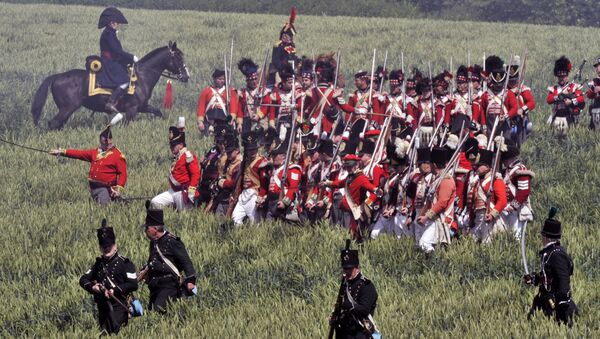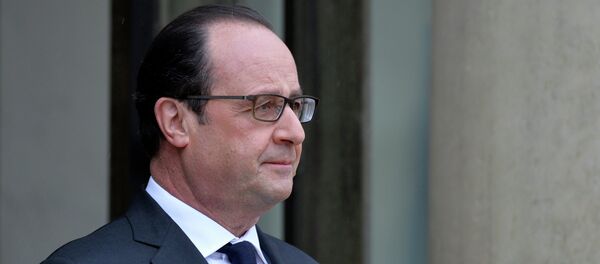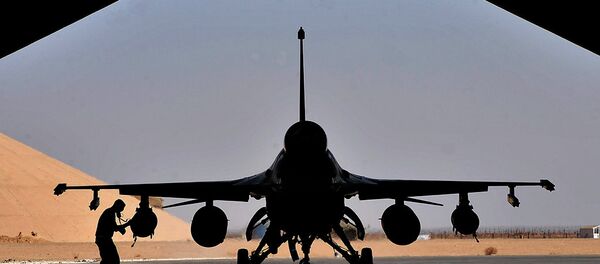The program is due to begin on June 18 at Waterloo, a grand five-day re-enactment of the phases of the battle, featuring 5,000 actors, 300 horses and 100 cannons. The event, the biggest re-enactment to date of the battle, will be witnessed by some 240,000 spectators.
"While the royal families from Britain, the Netherlands and Belgium have all announced long ago they would be coming, we have had no confirmation from French authorities," event coordinator Laurence Nelis told the French newspaper Le Figaro.
"There will be more Belgians and Germans playing the French than the French themselves – their political reticence is persistent, which is rather a shame."
{VIDEO] @Waterloo2015_BE is getting ready to host one of the biggest historic reenactment ever this summer http://t.co/zJa3tYTeNn
— Embassy of Belgium (@BelgiumintheUSA) 12 мая 2015
In an article entitled "Waterloo – the French taboo," Le Figaro attributed the reluctance to mark the event to "a rekindled bitterness at this invitation to the world to watch the agony of the fall of the Emperor…and even worse, the end of a conquering France."
In the British press, the lack of representation from France, and lack of interest in the organization of the event, has been interpreted as a snub of the bicentenary, with the French being called "miffed" and "bitter"; The Times has gone so far to call their response an "effective boycott" of the reenactment.
In March France was criticized for forcing Belgium to drop a design for commemorative €2 coins to mark Waterloo, after the French government sent a letter of objection to the Council of Europe saying the move would be met "with a hostile reaction in France."
The complaint was also met with a critical response in Britain, where British Conservative MP Peter Bone told the press that "the French should grow up a bit and support the Belgians." Yves Vander Cruysen, deputy Burgomaster of Waterloo, was quoted as saying that "France has a real problem with its Napoleonic history."
The Battle of Waterloo on June 18, 1815 took place between Napoleon's French Imperial Guard and the Allied army, commanded by the Duke of Wellington and Prussia's Field Marshal Gebhard Leberecht von Blücher. The Allied coalition of British, Dutch, German, Belgian and Prussian soldiers emerged victorious from the bloody battle, in which tens of thousands of soldiers died, marking the end of Napoleonic France's Imperial ambitions.




